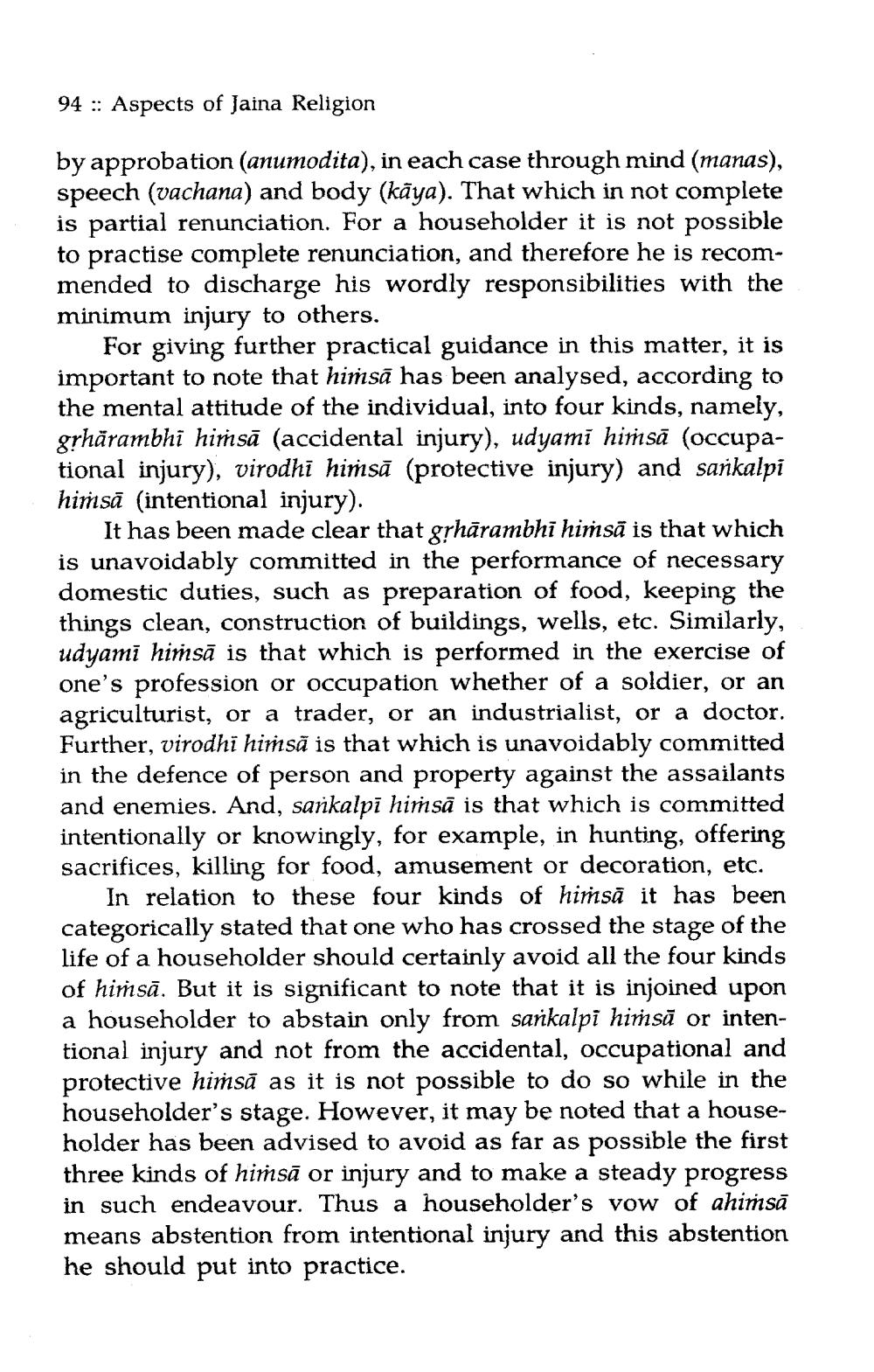________________
94 :: Aspects of Jaina Religion
by approbation (anumodita), in each case through mind (manas), speech (vachana) and body (kāya). That which in not complete is partial renunciation. For a householder it is not possible to practise complete renunciation, and therefore he is recommended to discharge his wordly responsibilities with the minimum injury to others.
For giving further practical guidance in this matter, it is important to note that hisā has been analysed, according to the mental attitude of the individual, into four kinds, namely, grhārambhi himsā (accidental injury), udyami himsā (occupational injury), virodhi himsā (protective injury) and sarkalpi himsā (intentional injury).
It has been made clear that gļhārambhi hiṁsā is that which is unavoidably committed in the performance of necessary domestic duties, such as preparation of food, keeping the things clean, construction of buildings, wells, etc. Similarly, udyami himsā is that which is performed in the exercise of one's profession or occupation whether of a soldier, or an agriculturist, or a trader, or an industrialist, or a doctor. Further, virodhi hiṁsā is that which is unavoidably committed in the defence of person and property against the assailants and enemies. And, sankalpi hiṁsā is that which is committed intentionally or knowingly, for example, in hunting, offering sacrifices, killing for food, amusement or decoration, etc.
In relation to these four kinds of himsā it has been categorically stated that one who has crossed the stage of the life of a householder should certainly avoid all the four kinds of hiṁsā. But it is significant to note that it is injoined upon a householder to abstain only from sarkalpi hirsā or intentional injury and not from the accidental, occupational and protective himsā as it is not possible to do so while in the householder's stage. However, it may be noted that a householder has been advised to avoid as far as possible the first three kinds of himsā or injury and to make a steady progress in such endeavour. Thus a householder's vow of ahiṁsā means abstention from intentional injury and this abstention he should put into practice.




